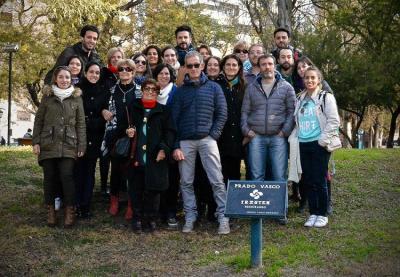Managed by HABE, the Euskara Munduan Program for the 2013-2016 period had its 8th intensive course from July 16-23 in Mendoza. Organized by the local Basque club Denak Bat and FEVA, the Barnetegi and teachers’ training, coordinated by Kinku Zinkunegi has come to a close. FEVA’s president, Hugo Andiazabal traveled to Mendoza to express the federation's support for the program.
Mendoza, Argentina. The winter 2016 Euskara Munduan Barnetegi took place for the first time last weekend in the city of Mendoza, where the local Basque club, Denak Bat became the site of one of the most important activities in the area of Euskera and gathered representatives from Basque clubs in Argentina, Chile and Uruguay. When asked how it went, Euskara Munduan coordinator, Kinku Zinkunegi, told EuskalKulturalcom that “everything went better than good at the barnetegi. It should be noted that we had to reset the group that began in 2013 because some of the students were dropped for not reaching the minimum level required; and we have also included new students. They are new to this group, but have been studying for years.”
“These are students who in 2012, when they took the HABE exam in Argentina, didn’t pass the first level. Now we have invited these students in hopes of them becoming accredited in Level 2 (2a) in 2019. I should say that their integration has gone perfectly, and they fit in completely naturally.” “I also feel that it is important to stress that at the Barnetegi a jump in the use of Euskera was notable on the part of the students. More Euskera was heard outside of class, during meals and during free time. And above all, they were using it more naturally.”
“This time, the two Argentine teachers who were in charge of teaching were Rocio Basterra and Sabrina Otegui. The difference from prior gatherings is that one of the professors used to be from the Basque Country and in this case the two instructors are both from here that shows that even though we provide material from Euskal Herria, Argentina does have the resources to carry out a course like this one. They did great work, at a level and teacher quality of a teacher in the Basque Country.”
Teacher Training
Along the lines of the last two Barnetegis, this one also included teacher training. In the words of Zinkunegi, “the majority of the students in the program are already teaching; some will begin soon and so that is why this time is indispensable so that we can address their concerns regarding teaching classes. We had them submit their questions and concerns ahead of time so that we could talk about them. One of the biggest concerns that was shared by many was in regards to the lack of teaching tools. Learning a language isn’t’ the same as learning how to teach it and the difference is from what happens in the Basque Country where teachers dedicate themselves exclusively to teaching, professors here, in general, have other jobs and only teach a few hours a week. Even though, and with less teacher training than teachers there, they deal with more complicated groups of students, especially because they are heterogeneous groups of different ages, goals and rhythms. This is one the biggest difficulties that the teachers here face.”
“We also talked about teaching materials, not because it doesn’t exist, but because I think that they aren’t aware of everything there is; also about how to address new challenges facing the new types of students and new ways of learning.”
Euskera, a priority at Denak Bat
In regards to the course’s organization and the hosting Euskal Etxea, the coordinator of Euskara Munduan had more words of recognition. “I think that the Euskal Etxea in Mendoza should be taken as a model. Here Euskera occupies a principal place; the president, Alicia Aguirre, has gone through the Euskara Munduan program as well as two other teachers who along with her, currently teach classes at the club. The attitude and sensibility that is shown towards Euskera was demonstrated during this time in the way that we were welcomed and for that I’d like to thank the board, the students and everyone who made this Barnetegi possible.”




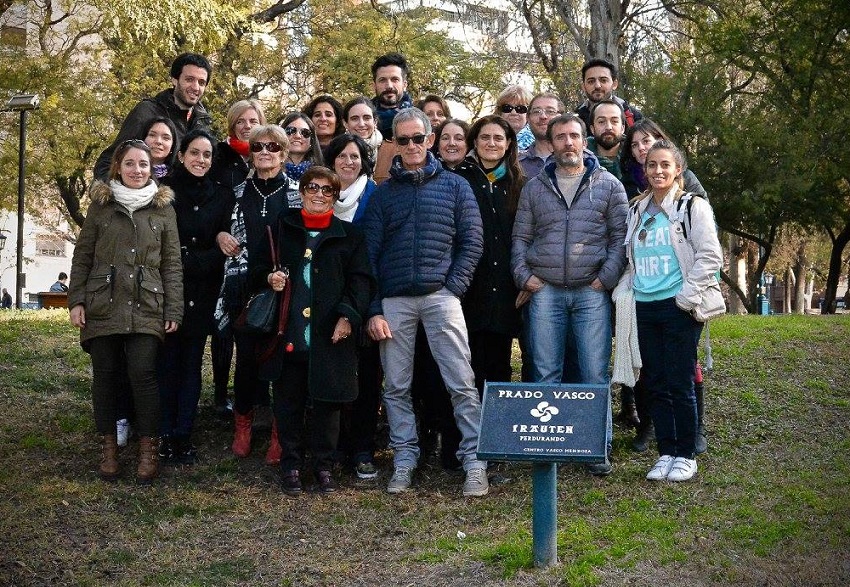



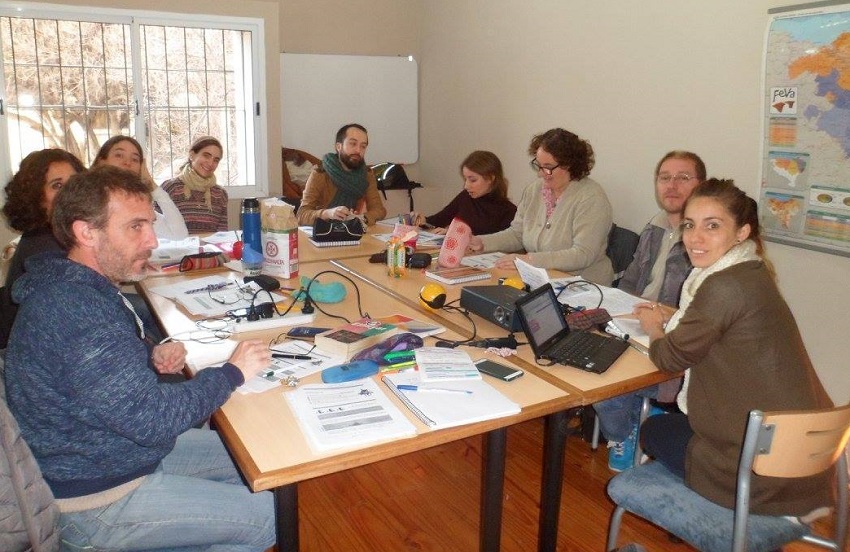
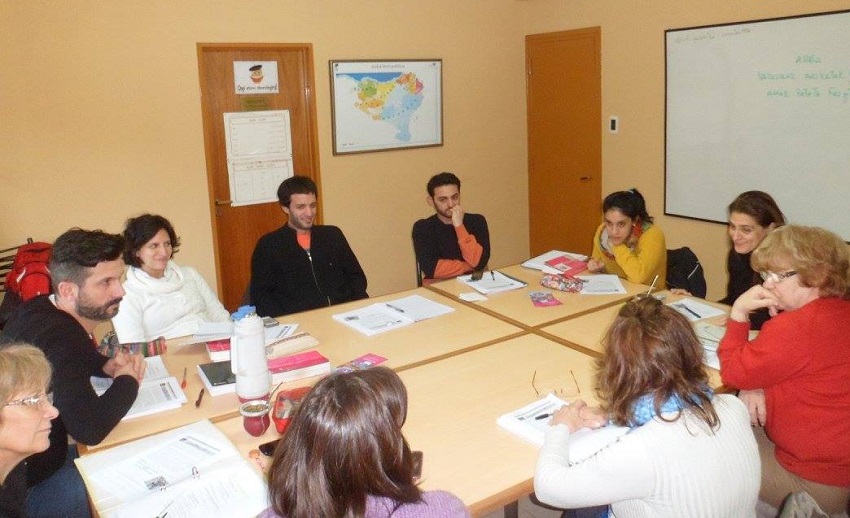
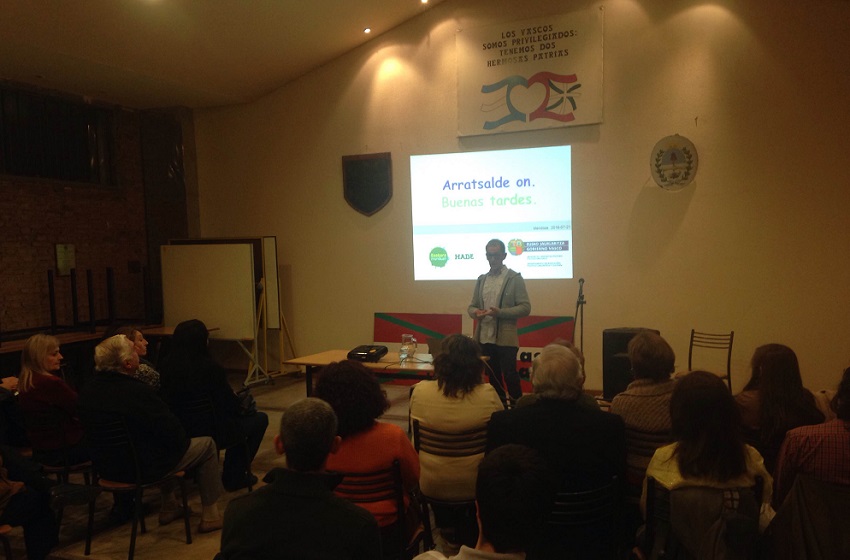
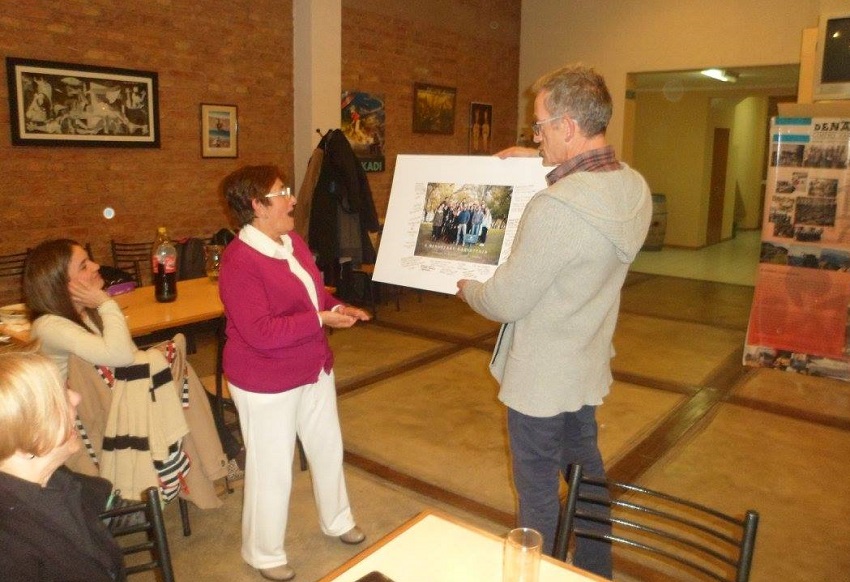
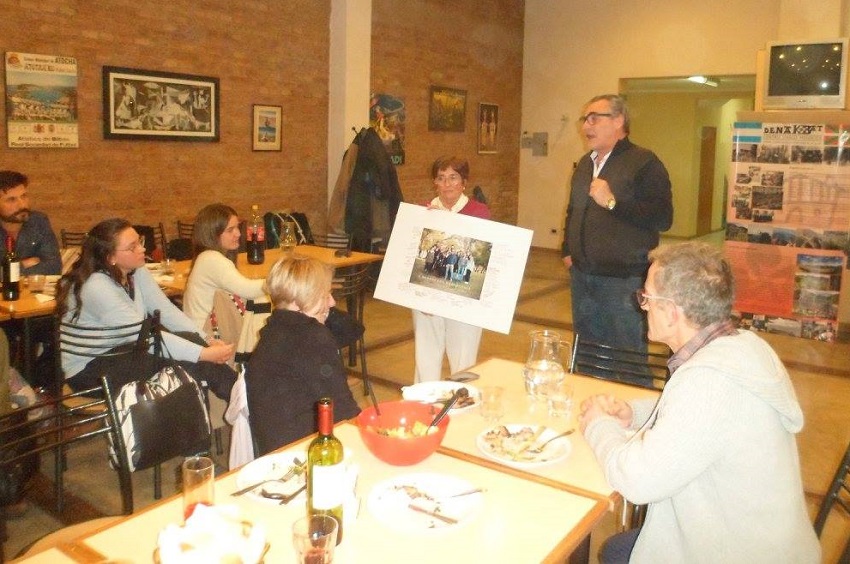
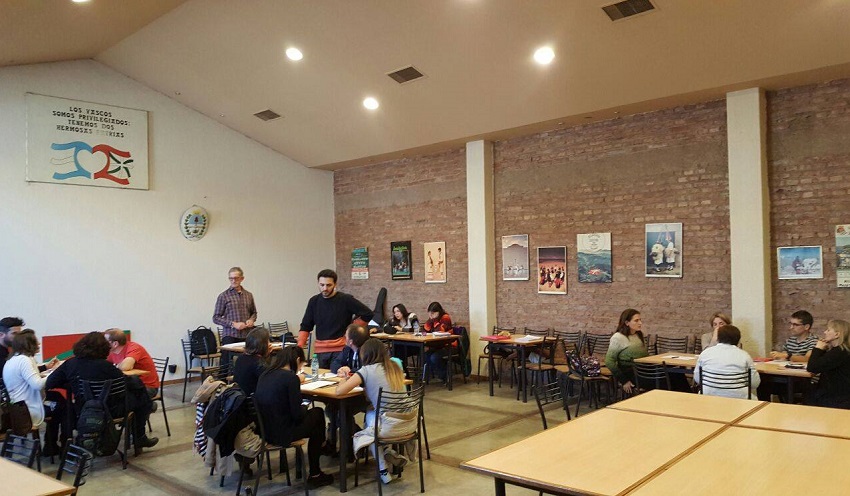
 Send to a friend
Send to a friend Add comment
Add comment

